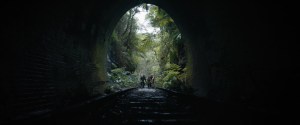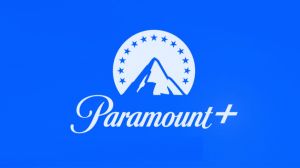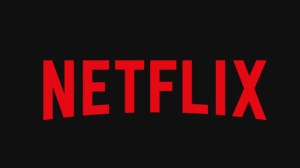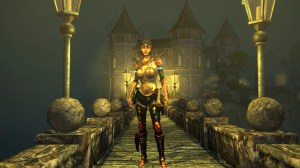
Recently, Mystery Science Theater 3000 creator Joel Hodgson announced that the series would return — funded by Kickstarter — in 2017.
Videos by ComicBook.com
The plan is to generate as much money (and by extension proof of interest on the part of fans) as possible to produce a new, re-cast season of the cult hit series, and with new episodes in hand, Hodgson and his partners at Shout! Factory will shop the new and old content to a network or streaming service who would be willing to take a chance on them.
They’ve already generated just shy of $3 million, and if they make $3.3 million — the threshold where they expect to be able to produce 6 new episodes — by the end of Thanksgiving, they’ll dump a new batch of bonus content on backers.
Earlier this week, Hodgson spoke with ComicBook.com about the series, his new bad and bots, and what to expect in the near future.
You can check out the video for the campaign below, and check out the Kickstarter page itself here.
After years of everybody begging for more MST3K, what makes now the right moment?
Oh, I don’t know. I think a couple of things. I think one of them might be that there’s crowdfunding now, and I think that’s a big thing at work. But we just got the rights. We’ve been working on getting the rights back for like five years now and we finally closed the deal like three months ago, so that had a lot to do with it.
That same day when you launched the Kickstarter, you announced a partnership with Shout! Factory. Do you think that will have an impact on your plans for the new content?
I’m partners with them on these new episodes. Right now with the Kickstarter, we’re trying to do 12 episodes and then in success, once that’s done, we’ll try and land them on a network or a platform so more people can see it. Does that track with what you’re asking?
Sure. I just wondered whether you guys would go to Shout TV or if you were still going to shop it around.
No, I don’t think it’s going to go on Shout TV. I think the idea is to find a home for it where it can be seen by a lot of people. You know, the idea is to find a platform or a network that would get in behind promoting the show. My impression is that if it’s just on YouTube, there’s nothing really motivating people for promoting it. I think that’s the next move once we get done with this.
This week, you announced three new cast members. How involved have they been in conceptualizing the new series?
Oh, man. Not too much. They’re really plugging into these roles and as you know, with Mystery Science Theater that’s a big thing. The people really offer a lot of their character, so that’s really important, but it’s kind of like when we did Mystery Science Theater originally. I had the whole blueprint: there’s this theater seats, there’s these mad scientist; there’s a guy in space. And really it was about testing people, bringing people in who were creative and could movie riff. That’s the big job to me.
The new Mystery Science Theater doesn’t change much from the other iterations. It’s still about movie riffing and you have an antagonist who’s sending this guy bad movies, and he’s got robot companions. I don’t think it’s changed too much. For people who are hardcore fans, there are some differences, but to me, it’s really similar.
Do you think that for the hardcore fans who might otherwise have been resistant to the idea of a new cast, it’s been helpful to have support from the folks at Rifftrax?
Oh, yeah, I think so. I think that’s really important; they’ve been really good about that.
Even the Cinematic Titanic people — all of the people I’ve talked to, whether they can get involved or not, they’ve all agreed to support the new venture so everybody’s been really good that way.
I watch a lot of television and I watch a lot of movies for work, and I feel like you can see the DNA of Mystery Science Theater 3000 in modern entertainment. Did you ever have an idea that years later, this would be a thing that had such profound impact on popular culture?
Oh, man. I don’t think so, that’s pretty big.
I knew enough to know that I thought it would be a really great idea for a show and I thought it would work. People always go, “Were you surprised people liked Mystery Science Theater?” And I’m like, “No, that’s why you make a TV show; you think people will like it. That’s the idea!”
But this kind of funny thing about it being essential viewing if you’re a comedy nerd has been really interesting to me. I have to say personally, you can’t design that in. I think there’s just too many factors and timing has a huge part of it and being lucky has a lot to do with it. That completely surprises me.
I think a lot of those things just kind of worked out and we were just ahead of the curve because it was the first show that really shared the screen with the audience, and that’s a huge thing now. It’s how we live now. Even when you work in Google Docs with somebody, you’re sharing a screen. I think if anything, we were just ahead of the curve on that idea but I thought it was super obvious. I was shocked nobody had done it before me. That was the one thing. I kept looking around going, “Is there any kind of show that’s ever happened like this? There’s got to be.” And I was pretty shocked that there wasn’t.
I think it’s just one of those things where we were super lucky and caught this. People have said we anticipated social media; the way people shared screens and talk about things that they’re looking at together. For me, I just thought it was a really good idea, very efficient, inexpensive way to do a comedy show. I think thta’s all I was going for.
Years on, there’s a ton of similar shows on YouTube, and there’s Cinematic Titanic and Rifftrax. What do you think differentiates you from those kinds of similar things when you come back?
People really care about Mystery Science Theater. They really want ot understand where it’s going. People are really, really concerned when they said “Where’s everyone else? It looks like you’re doing this alone. What’s going on?”
And I really had to sit them down and say “This is why. It’s about refreshing it, it’s not a reunion show.” And once I explained it to everybody and gave them the reason and examples in history of other brands, from Bond films to Doctor Who to Saturday Night Live, if it’s a good enough concept, it should be able to be allowed to be refreshed and new people should be able to get in there and do it.
And once I explained it to them, everything was fine but at first they were really concerned because they care so much. So I have to be ready with really good reasons and that’s what I have to spend a lot of my time doing is reading what they’re talking about and writing down, putting my thoughts to paper. It’s serious. I really want ot do a good job.
I take it very seriously, I care about it and I want to do a really good job. If there’s any rejiggering that has to happen, I want to make really smart design moves. I don’t want to do anything that doesn’t make it better or doesn’t make it more efficient as far as a way to deliver jokes.
You talked a little bit about how you decided on a lead in Jonah, but how did you come to Felicia Day? She has a fan base and a persona and I think she comes with more of a personal brand and more expectations than the other comics you’ve assembled.
Yeah, I think that’s a really good question. The way I looked at it was, I needed somebody who really could be autonomous in that role and not be worried about it. Hampton and Baron and Jonah are pretty tight and they’re really good together, and I needed somebody who wasn’t going to be threatened by that and would thrive in that environment.
And also there’s the possibility that we’re going to have these people come back who are from the original cast, who these people kind of idolize. Mystery Science Theater fans idolize these really big people from the past. So I really needed somebody who wasn’t going to be intimidated by that and who I thought could manage it and be on top of it and be up for the challenge.
Felicia has that, I think. She just seems so comfortable in her own skin and she doesn’t seem to have a lot of fear. That was really important to me, to put somebody in there who could be a little bit of a comedic lion tamer and just be in there and not be afraid.
I like each of the new cast members because they each have a really strong comic identity outside of MST and they’re all kind of fully formed. It’s way different than when we started in Minnesota and none of the people in the cast had ever even done stand-up on television or had any national credits.
With Felicia and the as-yet-unknown henchperson, how much work did you have to put into that chemistry? Who’s not going to be steamrolled by a personality as big as Felicia’s?
Well, you’re going to have to see who we’re going to roll out next week because it will curl your hair, the person we have for the henchman. And they’re pretty evenly matched, Felicia and the new person who’s the henchman. So I think once you see it, it will make a lot of sense to you. What it is, is I look at it as a playing field and you have to put these elements together.
I think the big thing with every single person involved is they love Mystery Science Theater and they want it to keep going and they want to keep the tone and the style the same but just refresh it with new, more relevant riffs and situations. That was kind of a big thing for me to sign off on was to say if they care about it, I’m good with it.
Jonah, he’ll mess with me. He’s not afraid of me. I’m not really his boss; I’m a collaborator with him. One say I was e-mailing him and I asked him if he could sing. It was like I had to make sure that he and Hampton and Baron feel okay singing because we always do songs, you know? And he just laughed and he said, “Don’t worry about it; I’ve heard you sing.” It was a really funny kind of backhanded putdown. And he’s right, because I love to sing but nobody’s ever asked me to sing twice, but I just thought he had a really funny way of saying “Just relax. I can sing better than you ever did.”








